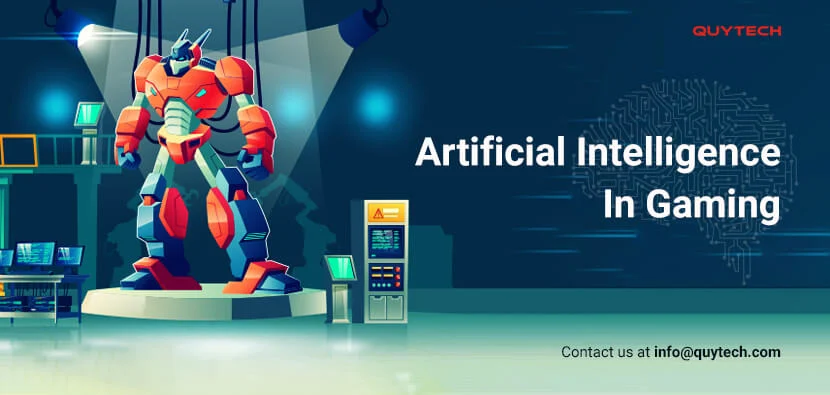The Impact of AI on Game Development has been substantial in recent years. Artificial intelligence has revolutionized the way games are created, allowing for more complex and realistic environments, non-player character behavior, and game mechanics. AI has also been used to improve player experience by personalizing gameplay and providing adaptive difficulty levels. As a result, AI has become an integral part of modern game development, shaping the future of the industry.
One of the most intriguing aspects of The Impact of AI on Game Development is its ability to streamline the game design process. With AI, developers can automate certain tasks such as playtesting, level design, and bug fixing, allowing them to focus more on creativity and innovation. Additionally, AI can analyze player data and behavior to provide valuable insights for game improvement, leading to more engaging and immersive experiences for players. This has sparked a new wave of interest and excitement in the gaming community, as AI continues to push the boundaries of what is possible in game development.
The Evolution of Game Development with AI
AI has significantly impacted the way games are developed and played. With the advancement of AI technology, game developers are now able to create more immersive and realistic gaming experiences. AI has enabled the development of more intelligent and adaptive non-player characters (NPCs) that can interact with players in a more realistic and dynamic manner. This has led to the creation of more complex and engaging gameplay experiences for gamers.
Furthermore, AI has also revolutionized game testing and debugging processes. AI algorithms can be used to identify and fix bugs in the game code, leading to more stable and polished game releases. Additionally, AI-powered procedural generation techniques have enabled developers to create vast and diverse game worlds with minimal manual effort, saving time and resources in the game development process.
Enhanced Player Experience through AI
AI has played a crucial role in enhancing the overall player experience in video games. Through AI-powered tools and algorithms, game developers are able to personalize gameplay experiences for individual players based on their unique preferences and playing styles. This level of personalization can lead to higher player engagement and satisfaction, ultimately resulting in a more successful game.
Moreover, AI has also been used to improve in-game analytics and player behavior prediction. By analyzing player data and interactions, AI can help developers better understand player patterns and preferences, allowing for the creation of more targeted and tailored gaming experiences. This leads to increased player retention and a deeper connection between the player and the game world.
AI-driven Procedural Content Generation in Game Development
Procedural content generation (PCG) has been significantly empowered by AI in game development. AI algorithms can now generate game content such as levels, maps, and environments with a high degree of complexity and variation. This has led to the creation of more diverse and dynamic game worlds that offer unique experiences for each playthrough.
AI-driven PCG has also allowed for the creation of adaptive and responsive game environments that can change and evolve based on player actions and choices. This level of dynamic content generation adds a layer of unpredictability and excitement to games, keeping players engaged and entertained for longer periods of time.
AI and Real-time Decision Making in Games
The integration of AI in game development has revolutionized real-time decision making within games. AI-powered systems can analyze and process vast amounts of in-game data to make split-second decisions, creating more challenging and unpredictable gameplay scenarios for players. This has led to the development of more sophisticated and intelligent adversary AI, enhancing the overall gaming experience.
Furthermore, AI has also been used to create more realistic and immersive virtual environments by simulating complex and dynamic behaviors. This has resulted in more lifelike and responsive game worlds that adapt to player actions in real time, providing a more engaging and interactive experience for players.
Challenges and Ethical Considerations in AI-powered Game Development
While AI has brought numerous advancements to game development, it also poses certain challenges and ethical considerations. One of the major challenges is the potential bias in AI algorithms, which can impact the fairness and inclusivity of games. Developers need to ensure that AI systems are trained on diverse and representative datasets to minimize bias and promote fairness in games.
Additionally, there are ethical concerns regarding the use of AI in creating hyper-realistic and potentially harmful content within games. Developers must consider the potential impact of AI-generated content on players and ensure that appropriate safeguards are in place to protect the well-being of gamers.
Future Trends in AI and Game Development
The future of AI in game development is poised to bring even more groundbreaking advancements. With the continued development of AI technologies such as machine learning and deep learning, game developers will have access to more powerful tools for creating intelligent and adaptive game experiences. This could lead to the creation of games that dynamically evolve and tailor themselves to each individual player in real time.
Furthermore, the integration of AI-powered virtual assistants and chatbots within games could revolutionize player interactions and storytelling, offering more immersive and personalized gaming experiences. As AI continues to evolve, it is likely to become an indispensable part of the game development process, shaping the future of gaming in unprecedented ways.
Impact of AI on Game Design and Narrative
AI has had a profound impact on game design and narrative, allowing for more dynamic and responsive storytelling experiences. AI-powered systems can analyze player choices and behaviors to create branching narratives and adaptive storylines that respond to the player’s actions, leading to a more personalized and engaging narrative experience.
Moreover, AI has also enabled the creation of more lifelike and dynamic non-player characters (NPCs) that can adapt to the player’s decisions and contribute to the overall storytelling experience. This level of AI-driven character interaction has led to more immersive and emotionally resonant narratives in games, enhancing the overall storytelling potential of the medium.
AI and Game Development Tools
AI has revolutionized the game development process by providing developers with powerful tools and technologies to streamline various aspects of game creation. AI-powered tools for asset generation, animation, and level design have significantly reduced the time and effort required to create high-quality game content, allowing developers to focus more on creativity and innovation.
Furthermore, AI has also been utilized in game testing and quality assurance processes, enabling automated bug detection and optimization. This has led to more efficient and reliable game development cycles, ultimately resulting in higher-quality game releases and improved player experiences.
| Positive Impacts | Negative Impacts |
|---|---|
| 1. AI can be used to create more realistic and challenging non-player characters (NPCs). | 1. Over-reliance on AI may lead to less creative and innovative game design. |
| 2. AI can help in creating dynamic and adaptive game environments. | 2. Development and implementation of AI systems can be time-consuming and expensive. |
| 3. AI can assist in generating personalized gaming experiences for players. | 3. AI may raise concerns about privacy and data security in games. |
The Impact of AI on Game Development can be both positive and negative. While AI technology can enhance the overall gaming experience by creating more realistic NPCs, dynamic environments, and personalized experiences, it also poses challenges such as potential over-reliance, high development costs, and privacy concerns.



